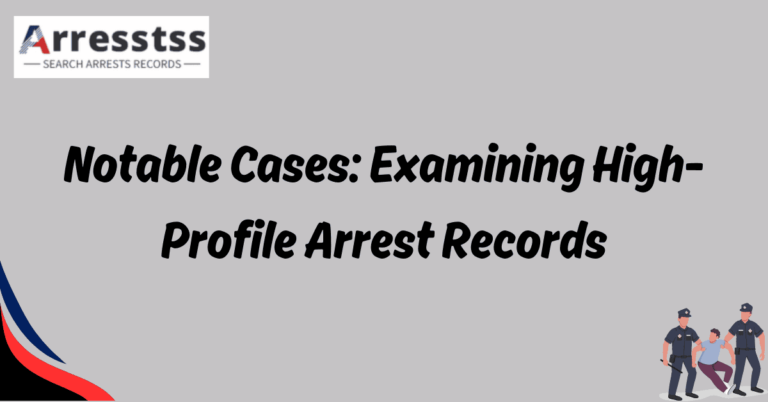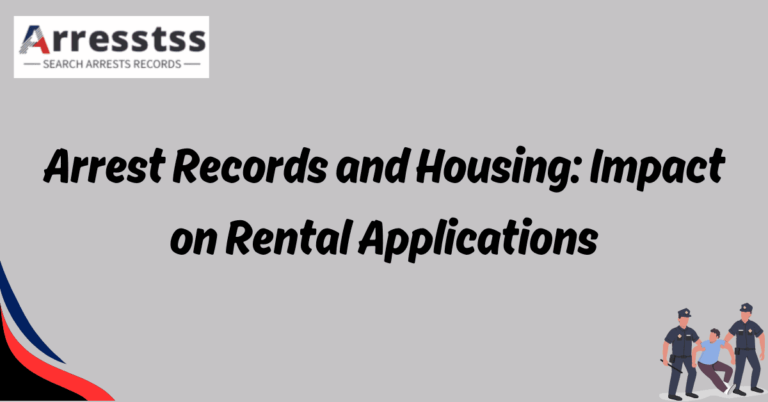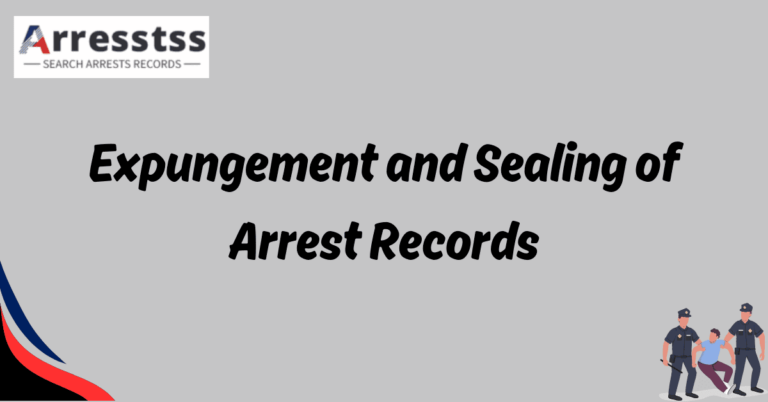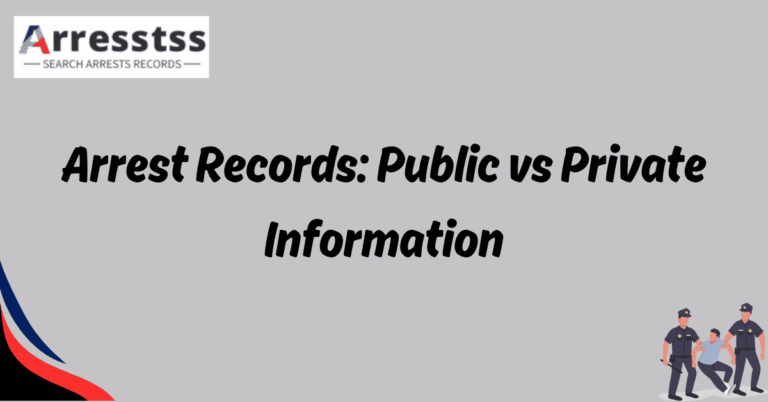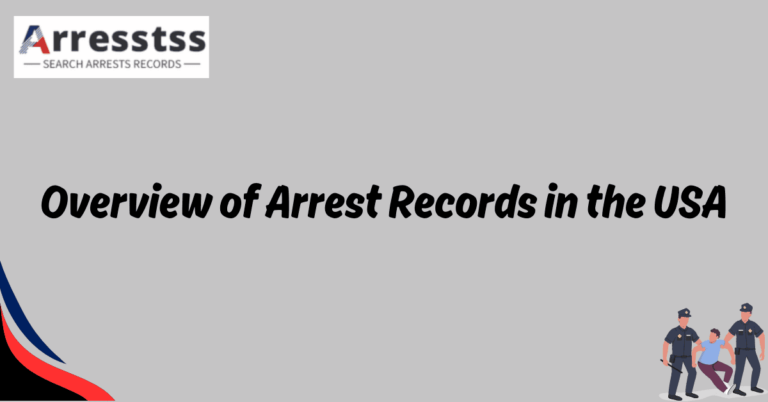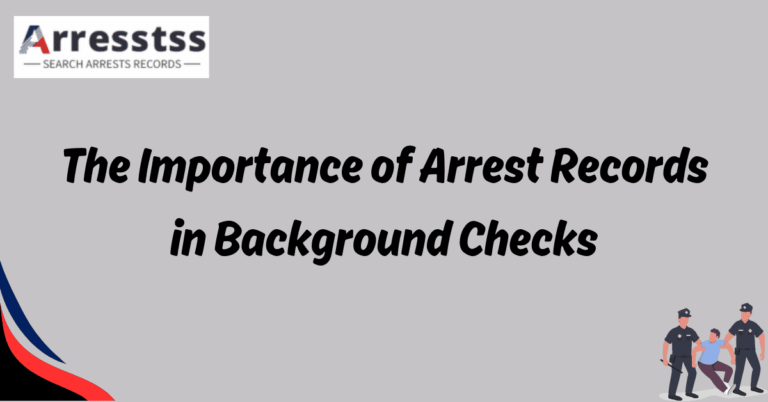Clearing Up Misconceptions About Arrest Records
Understanding Arrest Records: An Informative Overview
Arrest records can often be a source of confusion and misinformation. It is essential to understand the facts and clear up any misconceptions surrounding this topic. In this informative overview, we aim to provide you with accurate information about arrest records without any biased or misleading content.
Arrest records are official documents that detail an individual’s interactions with law enforcement. They are created when a person is arrested or detained by the police. These records typically contain information such as the person’s name, date of birth, address, fingerprints, and the reason for the arrest. It is important to note that an arrest does not necessarily indicate guilt or conviction; it simply means that a person has been taken into custody.
Accessibility of Arrest Records
One common misconception about arrest records is that they are automatically made public and easily accessible to anyone. However, the availability of arrest records varies depending on the jurisdiction and the nature of the offense. In some cases, certain arrest records may be sealed or expunged, meaning they are not accessible to the general public. Additionally, laws regarding the disclosure of arrest records can differ from state to state, further adding to the complexity of this topic.
Implications of Arrest Records
Understanding arrest records is crucial, as they can have significant implications for individuals and their reputations. Employers, landlords, and other entities may request access to these records as part of background checks. It is important to stay informed and aware of your rights regarding the dissemination and use of arrest records.
Protecting Your Rights
When it comes to arrest records, it is essential to know your rights. Depending on the jurisdiction, you may have the option to seal or expunge certain arrest records. Sealing a record means that it is no longer accessible to the public while expunging a record means that it is completely erased from the system. It is advisable to consult with a legal professional to understand the specific options available to you.
Staying Informed
By staying informed about arrest records, you can navigate the complexities surrounding this subject and make informed decisions. You have the right to request a copy of your arrest record to ensure its accuracy. Familiarize yourself with the laws and regulations governing arrest records in your jurisdiction, and seek legal advice if needed.
FAQ’s
Are all arrest records public and easily accessible?
There is a common misconception that all arrest records are automatically made public and easily accessible to anyone. However, the availability of arrest records varies depending on the jurisdiction and the nature of the offense. In some cases, certain arrest records may be sealed or expunged, meaning they are not accessible to the general public. Additionally, laws regarding the disclosure of arrest records can differ from state to state, further adding to the complexity of this topic.
What information is typically included in an arrest record?
An arrest record is an official document that contains information about an individual’s interactions with law enforcement. Typically, an arrest record will include the person’s name, date of birth, address, fingerprints, and the reason for the arrest. It is important to note that an arrest does not necessarily indicate guilt or conviction; it simply means that a person has been taken into custody.
Can I have my arrest record expunged or sealed?
In some cases, it is possible to have an arrest record expunged or sealed. Expungement refers to the process of erasing or destroying an arrest record, while sealing involves restricting access to the record. However, the eligibility and criteria for expungement or sealing vary depending on the jurisdiction and the nature of the offense. It is advisable to consult with a legal professional to understand the options available to you.
Can employers and landlords access my arrest records?
Employers, landlords, and other entities may request access to arrest records as part of background checks. However, the extent to which these records can be used for employment or housing decisions can vary. Some states have laws in place that limit the use of arrest records in these contexts, especially if the arrest did not lead to a conviction. It is important to stay informed about your rights and the laws in your jurisdiction regarding the use of arrest records.
How long do arrest records remain on file?
The duration for which an arrest record remains on file can vary depending on the jurisdiction and the outcome of the case. In some cases, if the charges are dropped or the individual is found not guilty, the arrest record may be eligible for expungement or sealing. However, if there is a conviction, the arrest record may remain on file for a longer period or indefinitely. It is advisable to consult with a legal professional to understand the specific laws and regulations in your jurisdiction regarding the retention of arrest records.
Conclusion
Our aim with this overview was to provide you with an informative understanding of arrest records, shedding light on common misconceptions and highlighting the importance of being knowledgeable about this topic. Remember, arrest records should not define a person’s character or reputation, as an arrest does not imply guilt. Stay informed, protect your rights, and make informed decisions based on accurate information.


